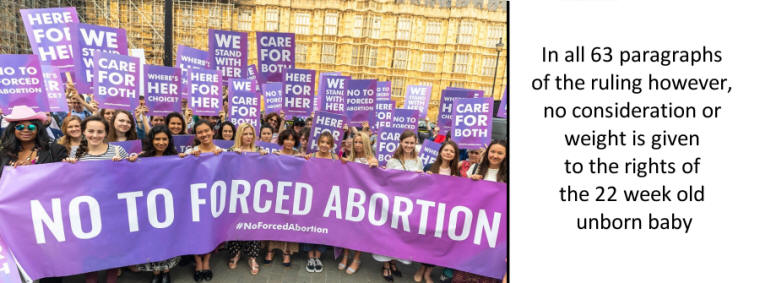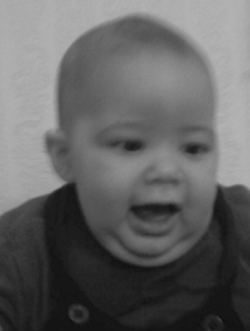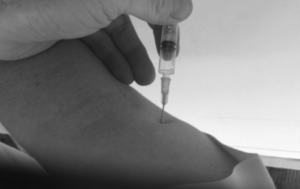Catholic Medical Quarterly Volume 69(3) August 2019
Hoc Tempore:
Catholics Are Needed In Healthcare!
Dr Adrian Treloar FRCP
1. Forced Abortion in the UK
Many will have been deeply shocked in June by the case of a 22 week pregnant learning disabled woman whose doctors wanted to abort her child without her consent. But the girl did not want an abortion. The woman’s mother, a Nigerian Catholic midwife, said that she would care for the baby. However, Justice Lieven dismissed that possibility, and said she thought the pregnant woman would suffer more distress if the baby was taken away than if pregnancy was terminated.
"I think (she) would suffer greater trauma from having a baby removed," said the judge. "It would at that stage be a real baby." The judge added: "Pregnancy, although real to her, doesn't have a baby outside her body she can touch." Justice Lieven even went onto say that “I think she would like to have a baby in the same way she would like to have a nice doll.” [1]
The woman’s social worker disagreed that an abortion was in her best interests, and her legal team said there was “no proper evidence” to show this. Despite those objections the judge (Justice Lieven) ordered that the woman should have an abortion in her "best interests". Thankfully, the decision was overturned by the Court of Appeal, but many questions need answering.

he ruling sparked outrage and within 48 hours 98,000 people had signed a petition asking the Secretary of State for Health to act. Right to Life organised an excellent demonstration is outside Parliament which was well attended and attracted real support from passers by. Chanting “Say Hey, say Ho, say No to forced abortion” a clear message was given. Speaking at the demonstration, Emmi Egbonou, said::
“What is shocking is that this was ever allowed to happen in the first place. The fact that the state can force a late-term abortion on a woman who did not want one is not the kind of state we want to live in. The fact that a judge could make a ruling to force an abortion on a vulnerable woman without her consent is a betrayal of the justice system and betrayal of the most vulnerable in our society.“What is shocking is that this was ever allowed to happen in the first place. The fact that the state can force a late-term abortion on a woman who did not want one is not the kind of state we want to live in. The fact that a judge could make a ruling to force an abortion on a vulnerable woman without her consent is a betrayal of the justice system and betrayal of the most vulnerable in our society.
A forced late-term abortion would have been an irreversible trauma on the mother and would have ended the life of the baby that had been growing inside her womb for almost six months and, at 22 weeks, could survived outside the womb.
We are here today to we stand with this woman. We stand with her baby. We stand with her family. We stand with every woman in the UK who has been forced by a hospital to abort their baby.
The Government must ensure no women and family will ever have to go through this again. We are here today to send a clear message to the Government. This must never happen again.”[2]
We should note that in all 63 paragraphs of the ruling however, no consideration or weight is given to the rights of the 22-week-old unborn baby. [3]
After the baby had been allowed to live by the Court of Appeal John Deighan, SPUC Deputy CEO said:
"The decision to perform an abortion on a disabled woman against her will, when her mother had promised to look after the child, caused shock and outrage around the world. A forced abortion is one of the worst things that can be done to a woman, and it is beggars belief that a judge of this land advocated this kind of cruelty and barbarity” [4].
But it is extraordinary that the UK has joined countries such as China and used legislation to force abortion upon women. In the face of a mother (who is also a midwife) pleading for the life of her grandchild, that is truly tyrannical state sponsored abortion.
 The judge involved, Nathalie Lieven, has a long history of abortion
advocacy. As a lawyer, she represented the British Pregnancy Advisory
Service (BPAS) in 2011 in their crusade to allow home abortions. From 2015
to 2018, Judge Lieven represented the Northern Ireland Human Rights
Commission as it launched legal action against Northern Ireland's
government, arguing that their pro-life law violated the human rights of
women and girls.E3J. She also represented the Family Planning Association
in 2005 arguing against parental involvement with underage children in
decisions about contraception, sexually transmitted infections and
abortions.[5] Especially in the context of her judgement, we should be
concerned about conflicts of interest.
The judge involved, Nathalie Lieven, has a long history of abortion
advocacy. As a lawyer, she represented the British Pregnancy Advisory
Service (BPAS) in 2011 in their crusade to allow home abortions. From 2015
to 2018, Judge Lieven represented the Northern Ireland Human Rights
Commission as it launched legal action against Northern Ireland's
government, arguing that their pro-life law violated the human rights of
women and girls.E3J. She also represented the Family Planning Association
in 2005 arguing against parental involvement with underage children in
decisions about contraception, sexually transmitted infections and
abortions.[5] Especially in the context of her judgement, we should be
concerned about conflicts of interest.
Born and pre-born children are our greatest assets. President John F. Kennedy, himself one of nine children, once said: “Children are the world’s most valuable resource and its best hope for the future.”
2. Moves towards assisted suicide despite coercion of Dutch GPs to perform euthanasia.
At the other end of life, Nick Boles MP was granted a debate in July on assisted dying. The BMA and RCGP are to poll their member on assisted dying. This is a time of great danger; and yet a paper in the Journal of Medical Ethics in May entitled “Pressure in dealing with requests for euthanasia or assisted suicide. Experiences of general practitioners” [6] found that the majority of Dutch physicians feel pressure when dealing with a request for euthanasia or physician-assisted suicide (EAS). The study explored the pressures experienced by general practitioners using semistructured in-depth interviews with 15 Dutch GPs, focusing on actual cases.
Six categories of pressure GPs experienced in dealing with EAS requests were revealed: (1) emotional blackmail, (2) control and direction by others, (3) doubts about fulfilling the criteria, (4) counterpressure by patient’s relatives, (5) time pressure around referred patients and (6) organisational pressure.
 The
authors reported cases of emotional blackmail included patients
threatening to commit suicide if the euthanasia request was not granted.
Disturbingly, there were cases of the family threatening to kill the
patient: ‘Well, will I have to do it myself then, will I have to put a
pillow over her head? And then you will be the guilty one’ (Case 9.1)
The
authors reported cases of emotional blackmail included patients
threatening to commit suicide if the euthanasia request was not granted.
Disturbingly, there were cases of the family threatening to kill the
patient: ‘Well, will I have to do it myself then, will I have to put a
pillow over her head? And then you will be the guilty one’ (Case 9.1)
The study also showed that doctors had to try to counteract pressure being exerted on a patient by their family. Case 4.1 states: “One GP counteracted this pressure by encouraging the patient to explicitly state to her partner: ‘I am dying, not you, and I am the one making this decision’
We cannot hope that the weak, sick and vulnerable will be protected and safeguarded under any laws that allow doctors to kill.
De Boer et al concluded that “the pressure can be attributable to the patient–physician relationship and/or the relationship between the physician and the patient’s relative(s), the inherent complexity of the decision itself and the circumstances under which the decision has to be made.” We are familiar with the pressures applied to both mothers and professionals to cooperate with abortion, and should not doubt that in the NHS, pressure to cooperate with euthanasia will also be enormous.
3. Aborted tissue cell line vaccines.
The failure of national and international vaccine programmes to meet “herd immunity” uptake targets has been repeatedly in the news recently. Therefore in this issue we publish a long awaited article on the ethics of using vaccines derived from aborted foetal tissue cell lines.
It is an important issue: Catholic parents are refusing the rubella vaccine because, in conscience, many feel that they should not accept it. See page 13.
4. A double murder, the rights of the unborn child and the offence of Child Destruction
We looked on in horror recently at the brutal murder of Kelly Mary Fauvrelle: a pregnant woman who was stabbed to death in London [7]. Paramedics (heroically and very commendably) delivered her baby boy at the scene. Ms Fauvrelle, who worked at Croydon Delivery Office, was eight months' pregnant when she was killed at her home in the early hours of Saturday 29th June. Sadly, having fought for his life her baby son Riley died on the 3rd July. It appears almost certain that Riley was killed by the same attack that murdered his mother. We would expect therefore to see two counts of murder laid against the assailant. This was a double murder. Rightly, the Metropolitan Police recognised that and as a result stated that they were investigating a “double homicide”. [8] We are therefore surprised that when a man was charged with the murder of Kelly, he received the lesser charge of manslaughter with respect to baby Riley.
Very disturbingly, Anthony Porter points out in this issue [page 25] that intrauterine deaths caused by road traffic accidents are not being considered in prosecutions for Road Traffic Accidents. Mr Porter points out that in UK law, unborn children are being denied their rightful legal status as a person - which cannot be acceptable. Under the Infant Life (Preservation) Act 1929 [9] anyone who “acts with intent to destroy the life of a child capable of being born alive, by any wilful act causes a child to die before it has an existence independent of its mother, shall be guilty of felony, to wit, of child destruction, and shall be liable on conviction thereof on indictment to penal servitude for life:” Section 2 of the Act makes it clear that the offence of Child Destruction can be brought when a person is tried “for the murder or manslaughter of any child, or for infanticide”. And yet charges are almost never brought under that Act. It is “'Too hard to convict people of harming unborn babies'” [10]. Only 16 people were convicted in 11 years between 2004 and 2015.
The simple solutions
In the face of all this there can be no doubt. We need our Bishops to speak out. And we, the laity must carry the arguments for life into the workplace. Our Annual conference in Hull was a great success [see page 19-21]. And we need to do all we can to make local meetings of like-minded doctors, nurses and others an ongoing and frequent reality.
All that is required for evil to triumph is that good men remain silent [8]. We must pray for the grace and strength to follow Jesus in Healthcare.
References
- Bishops condemn decision to force woman to have abortion against her will. Catholic Herald 24 June, 2019 https://catholicherald.co.uk/news/2019/06/24/bishops-condemndecision-to-force-woman-to-have-abortion/
- Large numbers protest forced abortion decision outside Parliament. Right to Life news. 25th June 2019. https://righttolife.org.uk/news/press-release-large-numbers-protest-forced-abortion-decision-outside-parliament-calling-on-govt-to-ensure-never-happens-again-2/
- Between an NHS Foundation Trust v AB (By her litigation friend, the Official Solicitor), CD and a Local Authority. [2019] EWCOP 26.
- Judge orders forced abortion on woman with learning difficulties. SPUC news 24 June 2019. www.spuc.org.uk/latestnews/latest-news/judge-orders-forced-abortion-on-woman-withlearning-difficulties
- Mother no longer knows best, high court told. The Guardian 11th November 2005. www.theguardian.com/society/2005/nov/11/health. medicineandhealth1
- de Boer ME, Depla MFIA, den Breejen M, et alPressure in dealing with requests for euthanasia or assisted suicide. Experiences of general practitioners. Journal of Medical Ethics Published Online First: 15 May 2019. doi: 10.1136/medethics2018-105120
- Kelly Mary Fauvrelle: Pregnant stabbing victim's baby dies. BBC news 3rd July 2019. https://www.bbc.co.uk/news/ uk-england-london-48851364 .
- Metropolitan Police. CCTV appeal to trace man re Croydon double homicide. 3rd July 2019. http://news.met.police.uk/news/appeal-to-trace-man-shown-oncctv-near-thornton-heath-murder-scene-374851
- Infant Life (Preservation) Act 1929 – (1929) http://www.legislation.gov.uk/ukpga/Geo5/19-20/34/contents
- Collins K. 'Too hard to convict people of harming unborn babies' BBC news 17 Apr 2015. www.bbc.co.uk/newsbeat/ article/32332040/too-hard-to-convict-people-of-harming-unbornbabies
- Attributed to Edmund Burke
